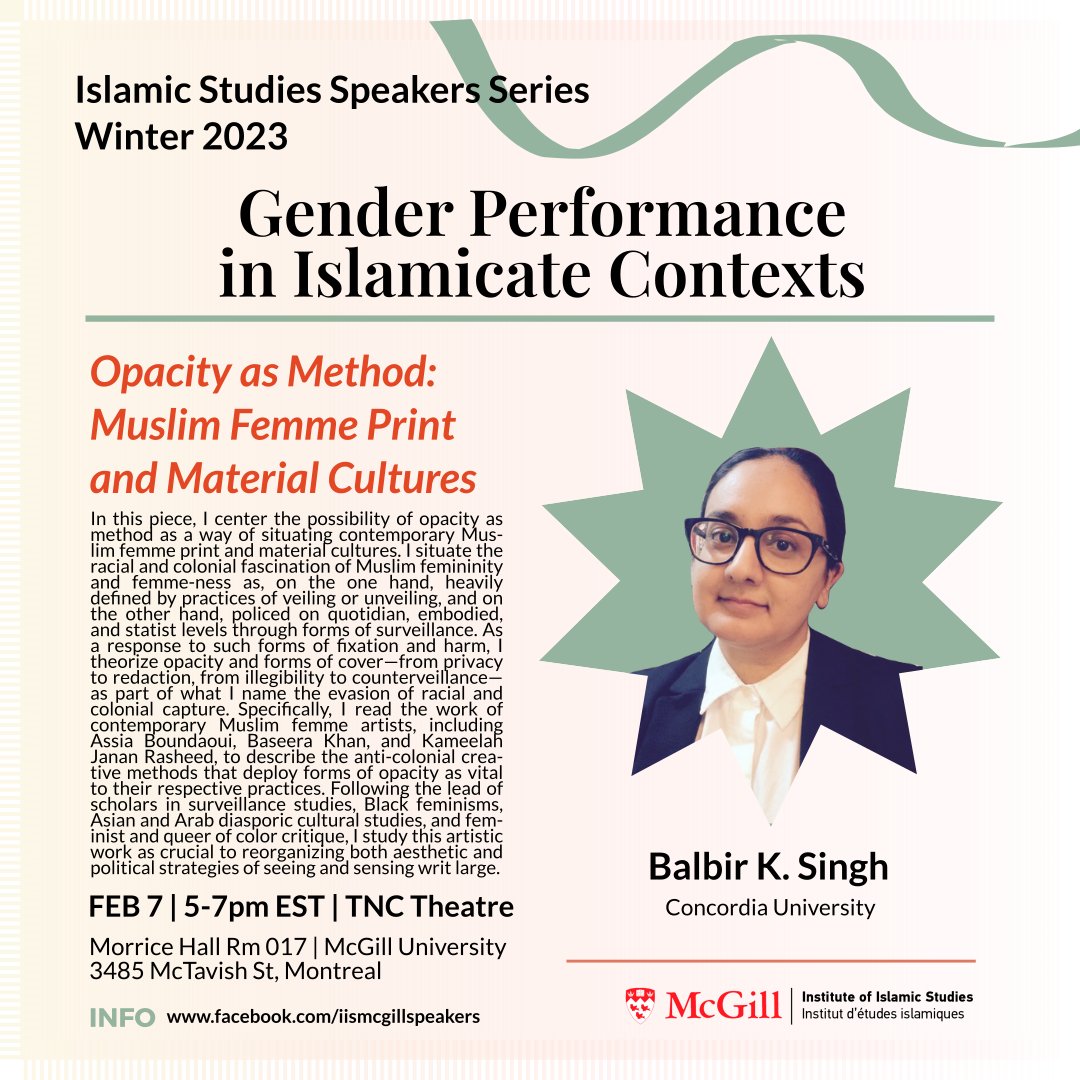Opacity as Method: Contemporary Muslim Femme Print and Material Cultures by Balbir K. Singh
[acf field="date"]
Institute of Islamic Studies, McGill University
Morrice Hall, Room 017
3485 McTavish, Montreal, QC H3A 0E1
“In this piece, I center the possibility of opacity as method as a way of situating contemporary Muslim femme print and material cultures. I situate the racial and colonial fascination of Muslim femininity and femme-ness as, on the one hand, heavily defined by practices of veiling or unveiling, and on the other hand, policed on quotidian, embodied, and statist levels through forms of surveillance. As a response to such forms of fixation and harm, I theorize opacity and forms of cover—from privacy to redaction, from illegibility to counterveillance—as part of what I name the evasion of racial and colonial capture. Specifically, I read the work of contemporary Muslim femme artists, including Assia Boundaoui, Baseera Khan, and Kameelah Janan Rasheed, to describe the anti-colonial creative methods that deploy forms of opacity as vital to their respective practices. Following the lead of scholars in surveillance studies, Black feminisms, Asian and Arab diasporic cultural studies, and feminist and queer of color critique, I study this artistic work as crucial to reorganizing both aesthetic and political strategies of seeing and sensing writ large.”
Balbir K. Singh is an interdisciplinary scholar trained in cultural theory and ethnic studies. Her work centers the racial, gendered, and sexual politics of embodiment, surveillance, and policing. Using anti-colonial methods of reading and sensing, Singh builds on theories of opacity across two book-length projects. The first, her in-progress manuscript “Militant Bodies: Racial/Religious Opacity and Minoritarian Self-Defense,” takes a materialist feminist approach to explore questions that center post-9/11 racial and religious hyper-policing of Muslim and Sikh bodies. Through a politics of religious dress, hair, and adornment, this project interrogates the related racial, gendered, and queer life of turbaned and hijabi bodies to analyze the twinned expansion of contemporary Islamophobia and surveillance culture. The second book project, “Opacity in Black and Brown: Race, Aesthetics, Anonymity,” will further analyze opacity as essential to a radical politics beyond representation for minoritarian peoples. She teaches courses in Asian and Arab diasporic cultural studies; race, affect, and aesthetics; visual culture and surveillance studies; and the politics of fashion and the body. Currently, she serves as Reviews Editor of Art Journal. Singh has been published in journals including Sikh Formations, Critical Ethnic Studies, QED, Surveillance and Society, Rhizomes, and the Journal of Asian American Studies.
